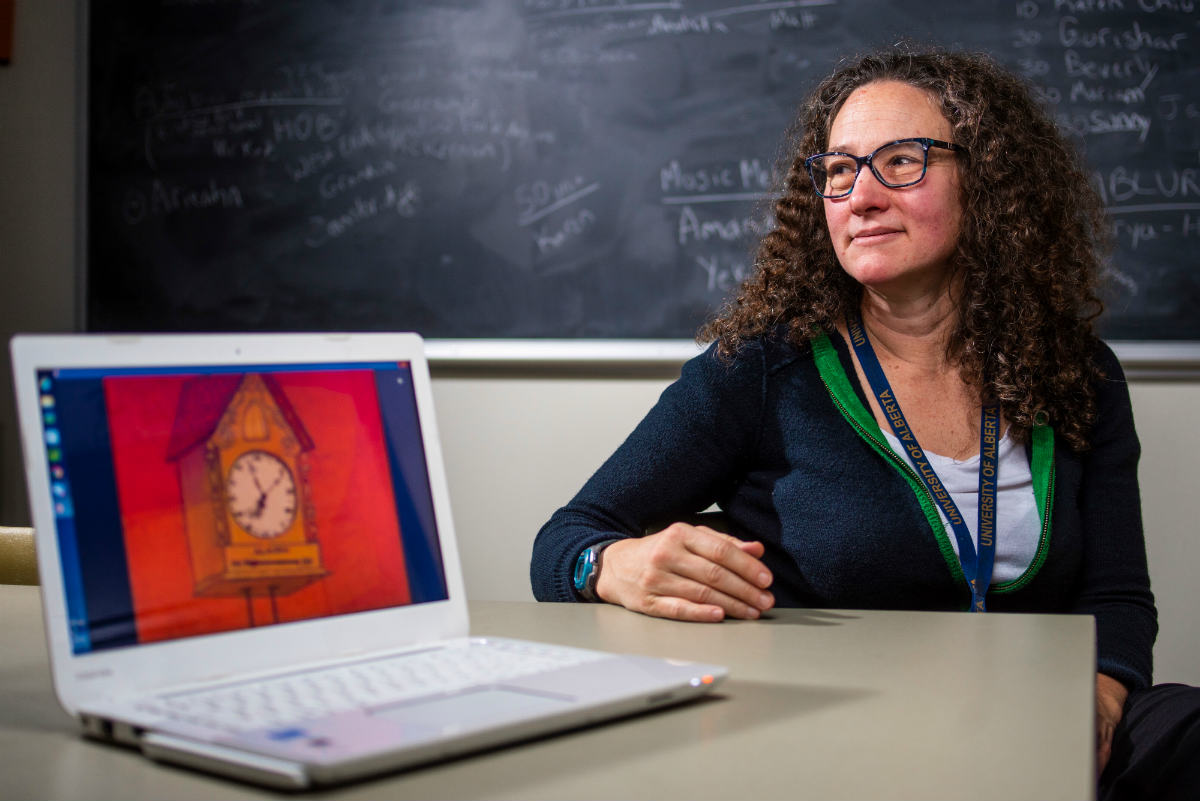
Elena Nicoladis, lead author and professor in the Department of Psychology. Nicoladis' findings show bilingual children have vocabularies equally as strong as monolinguals when telling stories. Photo credit: John Ulan
Bilingual children use just as many words as monolingual children when telling stories in both their languages, according to a new study by University of Alberta scientists. These findings directly oppose research that shows bilinguals score lower on vocabulary tests.
The study examined a group of Mandarin-English bilingual children, between the ages of four and six, and a group of English monolingual children of the same age. Both groups were asked to watch a short cartoon, then retell the story in their languages.
"Our findings show that the bilingual children told stories with just as many different words in both languages, compared to monolingual children," explained Elena Nicoladis, lead author and professor in the Department of Psychology. "They are not using simpler words. They are using words that are just as hard to say and with just as high or low frequency."
These results are in direct opposition to a body of literature that shows bilingual children score lower on standardized vocabulary tests than monolingual children. The difference, Nicoladis suggested, may result from the ability of bilingual children to shift their attention in free-form tasks.
This means that when bilingual children are approaching a concept that they don't know how to explain, they are able to shift their attention to another, similar way of saying it. For example, the story involved a panther. Instead of saying "panther," some bilingual children used the word "cat" to tell the story instead. While the word wasn't exactly correct, it was functional and acceptable for the purposes of telling a story.
"A lot of research up until now has shown delays in bilingual children," said Nicoladis. "Our results suggest that as soon as you get them into a more free-form type of task, which would be closer to what schools are likely to ask for, we don't see anything that looks even remotely like a delay."
The paper, "Language and Cognitive Predictors of Lexical Selection in Storytelling for Monolingual and Sequential Bilingual Children," was published in the Journal of Cognition and Development (doi: 10.1080/15248372.2018.1483370).
Nicoladis recently received a Social Sciences and Humanities Research Council Connection Grant for her work on the upcoming International Symposium on Bilingualism, to take place in June 2019.